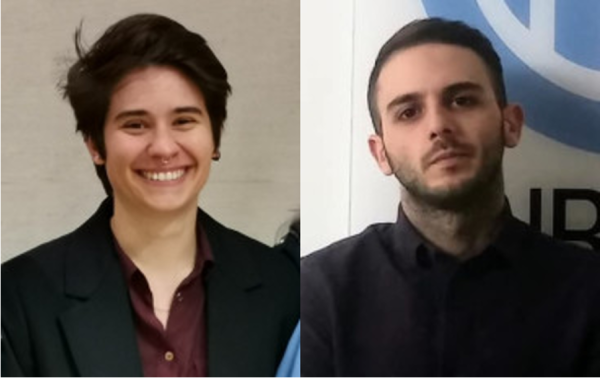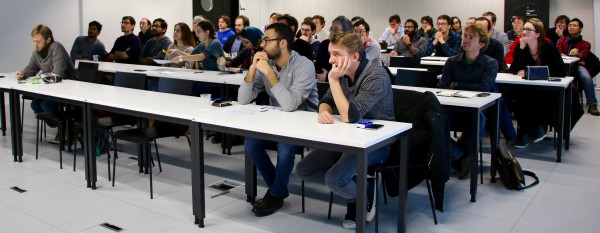MARVEL Junior Seminar — October 2025

Each seminar consists of two presentations of 25 minutes each, allowing to present on a scientific question in depth, followed by time for discussion. The discussion is facilitated and timed by the chair.
Pizzas will be served after the seminars in order to facilitate discussions based on the talks just presented.
Onsite participation
12:15 — Seminars take place in EPFL room Coviz2 (MED 2 1124)
~13:15 — Pizzas will be served in the MED building atrium, second floor
Online participation
Starting at 12:15:
https://epfl.zoom.us/j/61372772814
Password: 676550

Abstracts
Talk 1 — Predicting topological entanglement entropy in a Rydberg analogue simulator
Linda Mauron, Giuseppe Carleo
Computational Quantum Science Laboratory (CQSL), EPFL
Predicting the dynamical properties of topological matter is a challenging task, not only in theoretical and experimental settings, but also computationally. Numerical studies are often constrained to studying simplified models and lattices. Here we propose a time-dependent correlated ansatz for the dynamical preparation of a quantum-spin-liquid state on a Rydberg atom simulator. Together with a time-dependent variational Monte Carlo technique, we can faithfully represent the state of the system throughout the entire dynamical preparation protocol. We are able to match not only the physically correct form of the Rydberg atom Hamiltonian but also the relevant lattice topology at system sizes that exceed current experimental capabilities. This approach gives access to global quantities such as the topological entanglement entropy, providing insight into the topological properties of the system. Our results confirm the topological properties of the state during the dynamical preparation protocol, and deepen our understanding of topological entanglement dynamics. We show that, while the simulated state exhibits local properties resembling those of a resonating-valence-bond state, in agreement with experimental observations, it lacks the latter’s characteristic topological entanglement entropy signature irrespective of the degree of adiabaticity of the protocol.
Talk 2 — A dynamical Hubbard approach to the Mott-Hubbard/charge-transfer series of transition-metal monoxides
Mario Caserta, Tommaso Chiarotti, Nicola Marzari
Laboratory of theory and simulation of materials (THEOS), EPFL
Electronic correlations beyond static mean-field theories are of fundamental importance in describing complex materials - such as transition-metal oxides - where the low-energy physics is driven by localized d or f orbitals. Here, we generalize our recently introduced dynamical Hubbard approach [1] to the spin-polarized and multi-site case, making it possible to study the spectral properties of the prototypical monoxide series of MnO, FeO, CoO, and NiO. We find excellent agreement with experiments and state-of-the art DFT+DMFT both for the density of states and the spectral function - including band renormalization and spectral weight transfer - paving the way to a numerically efficient and physically transparent treatment of dynamical correlations in realistic systems.
Check the list of the next MARVEL Junior Seminars here.
Low-volume newsletters, targeted to the scientific and industrial communities.
Subscribe to our newsletter